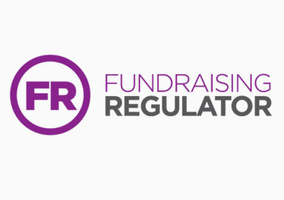The Fundraising Preference Service will suppress all communications from charities specified by an individual, according to the Fundraising Regulator.
The Fundraising Regulator has today published its board decision on the FPS which will allow for individuals to “specify the charities they no longer want to hear from” which will, in turn, mean that this opt-out “will cover all charities and all forms of communications with a named individual (email, text, telephone and addressed mail)”, not just fundraising-specific communications.
The board of the Fundraising Regulator chose to shelve the FPS working group’s recommendations that charities should be allowed a 28-day window to contact by mail, existing supporters that signed up to the FPS.
The board has also chosen not to follow the working group’s recommendation that the FPS should “have its own definition of what constitutes a ‘fundraising communication’, based on communications where the core purposes is to raise funds”.
Simplify the FPS
Both Stephen Dunmore, interim chief executive, and Gerald Oppenheim, interim head of policy and communications at the Fundraising Regulator, told Civil Society News that this decision was made in order to simplify the FPS for the public.
“The system we have put forward is a much clearer system,” said Dunmore, “because it does exclude and suppress all communications from the charities that you specify. Whereas the working group’s recommendations only suppressed communications which were largely about fundraising.”
Oppenheim said that the Fundraising Regulator had found it “difficult” to come up with a practical definition of what a purely ‘fundraising communication’ was.
“It was difficult for us to define what a purely ‘fundraising communication’ would be,” he said. “Everybody knows that’s a difficult thing to do. It’s obvious if it’s something that says ‘please donate’, but if it’s just a newsletter with a small opportunity to donate in a wider document, then it gets quite complicated to decide whether that’s a fundraising communication or not.”
Under the board’s FPS proposal, individuals will be prompted to signpost which charities they no longer wish to hear from when they sign up to the FPS. This in a sense replaces the arguably more nuanced, but undeniably more complicated, ‘small’ and ‘big’ red-button opt-out services proposed by the working group’s paper.
28-day safeguard no longer needed
Dunmore said that the 28-day “safeguard” proposed by George Kidd’s working group was no longer needed, as individuals will be able to specify which charities they no longer want to hear from, rather than placing a blanket opt-out on all fundraising communications.
The regulator will then “be able to manage contact with registrants without facing difficulty over consent, and will be able to do so for the most part on an automated basis”.
Opt-out from specified charities will have the “statutory force of a Data Protection Act Section 11 notice”, and Dunmore said that all charities who do not cease and desist contact with an FPS-registered individual will be “in breach of the law”.
Costs, procurement process and timeline
The board’s proposal said that: “costs [of the FPS] could be covered through the levy. Even if the levy had to be increased to cover costs, charities would not be faced with additional invoicing and fees to access suppression lists”.
Oppenheim said: “We think it’d be simpler and more effective if the levy covers that element as well, so that the costs of FPS are covered transparently as part of the annual levy payment. That way charities are getting one invoice a year, they know what it’s for: it’s to cover in part our operating costs and then, to cover the actual FPS costs, as far as they apply to them.”
The roughly 2,100 charities who fall within the brackets of the regulator’s levy will be forced that way to contribute to the costs of the FPS.
When asked about how much the overall FPS would cost, Dunmore said that “we can’t be certain about that yet,” and said he didn’t want to go into “exact figures”.
The regulator also confirmed that it hopes to have the FPS up and running by the ‘spring or early summer’ of 2017, and said that it has drawn up procurement papers to begin the process of procuring a supplier. They also confirmed that it would likely be rolled out in one go, rather than in a phased process.
Originally the plan was to launch the FPS by the end of this year.
Oppenheim said the regulator would look at a costs and benefits analysis “once we’ve got in tenders, in due course. We’ll look at all of it in terms of value for money”.
The regulator said that the model of the FPS put forward by its board – “together with the move towards affirmative consent [opt-in], will secure much more support from donors and charities”.
Related Articles












